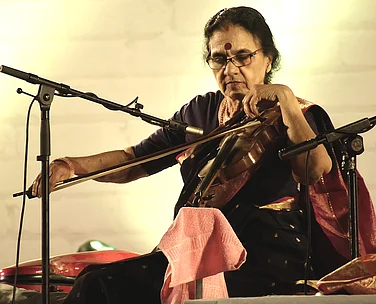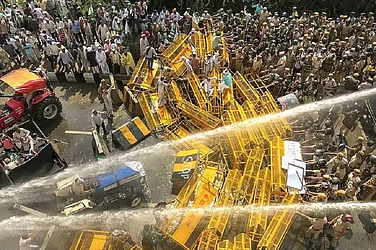- In its pristine form, Article 370 of the Indian Constitution had given J&K the constitutional right to have its own separate Constitution, its own prime minister, its own president and its own national flag. The residuary powers were vested with the state assembly and not the Parliament of India.
- The residents or state subjects of J&K were not citizens of India and the entry of Indian nationals into J&K was restricted. The goods from India had to pass through a customs barrier by paying import duties. The people of J&K were not obliged to uphold the integrity and sovereignty of India.
- The Supreme Court’s jurisdiction was restricted only to Article 131 dealing with disputes between the Union and the states. In all other matters, the apex court was given only appellate jurisdiction.
- The J&K government had complete, exclusive control over all the taxes. The I-T department of J&K was free from all central controls. There was no ‘financial integration’ between J&K and India.
- To put it simply, J&K was a sovereign within India having an agreement on three matters—defence, foreign affairs and communication—with the government of India.
- None of this holds true now. Over the years, the privileges have been overridden by various constitutional orders issued by the president of India.
- Article 370 is now just a husk; the seed has been long taken out. Out of the total number of 395 articles of the Indian Constitution, 260 have been applied to the J&K Constitution. The remaining 135 are identical to the Indian Constitution. So there are no real privileges or protections. In other words, Article 370, even though it is there, has been made irrelevant. Yet, it is important! Why?
- The answer to this comes from the most unlikely of people, Mr Narendra Modi! As the chief minister of Gujarat, Modi in his Republic day message, wrote, “A country such as ours cannot survive without a vibrant and functional federal structure. Sitting in New Delhi, the Centre may not always be able to do justice to the potential and needs of various states.” Article 370 is exactly about tilting the existing power balance in favor of J&K, which is a state within the Union.
- In an obvious reference to the appointment of the governor and the Lokpal, Modi wrote, “Chief ministers are not consulted on crucial appointments. Rather, appointments are being thrust down, violating the spirit of the laws of the land.” Article 370 prevents exactly this from happening in the case of J&K.
- Further, Modi has been lamenting the fact that the “Sarkaria Commission, which called for consultation between the states and the Centre on the concurrent list, hasn’t seen the light of day”. Again, Article 370 makes it obligatory on the Centre to seek concurrence of the state on matters of the concurrent list.
- Modi was also in the forefront in criticising the Centre for not discussing the Communal Violence Bill or the nctc with the states. The benefit of Article 370 in the case of J&K is that even if the Centre passes these laws, they will require the concurrence of the state legislative assembly to be applicable. So the last word rests with the J&K state!
- For its detractors, Article 370 is a hindrance to beneficial legislations like the Right to Education, which are not automatically applicable to J&K. This is a fallacious argument; all these can be easily extended.
- Unlike Article 371, sub-clause (a to g), which gives Northeastern states constitutional protection on the ownership of land, Article 370 doesn’t do that for J&K. The restriction on ‘outsiders’ buying and selling land in J&K is because of a state law promulgated in 1929 by the Dogra maharaja of the state.
- To put it on its head, the emaciated Article 370 may well provide PM Modi with the framework for a new federal structure that he had been advocating as Gujarat CM.
- For what was a “sovereign within a nation” has been over the years, wittingly or unwittingly, converted into a model for a country aspiring to have genuine cooperative federalism. As such, far from abrogation, it may serve as the basis of a model for other states.
- The benefit of Article 370 has been to make J&K a politically empowered state, an inclusive economy, an identity- conscious society. The single biggest benefit of Article 370 to the people of J&K is the radical restructuring of agrarian relations. It is not well recognised that the land reforms carried out in J&K have been possible only because of Article 370.
- As such, the current controversy on Article 370 is completely mindless; it’s only giving a lifeline to the otherwise thoroughly corrupt and compromised National Conference which got drubbed in the recent parliamentary polls. There is no need to abrogate as there is nothing left to abrogate!
- To borrow a medical analogy, Article 370 is to India what the appendix is to the human body. As long as it’s left alone, one can live with it forever. The moment it gets inflated or infected, it needs surgical attention! Or it will burst, endanger life. Better to leave it alone, especially as it isn’t infected.
(The author is an economist and ex-chairman, J&K Bank.)



















